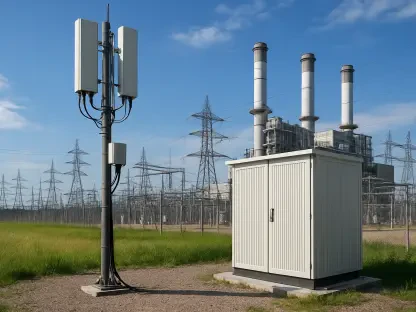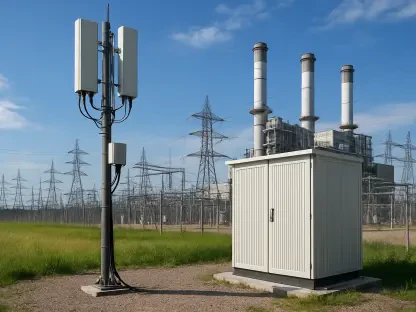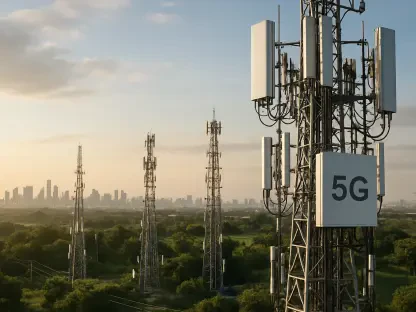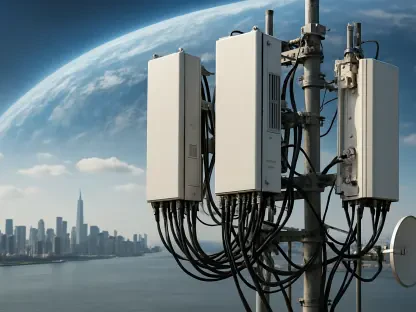Rocket Lab continues to break new ground in space technology with the announcement of its customized solar arrays designed specifically for satellite applications. This new line, referred to as Standardized Array (STARRAY), aims to revolutionize the satellite manufacturing process by offering pre-engineered configurations that remove the arduous task of creating and testing these systems from scratch. The STARRAY series, introduced at the 40th Space Symposium in Colorado Springs, Colorado, is available in seven distinct sizes, delivering power outputs ranging from 100 watts to over 2,000 watts and catering to the various power needs of satellites in diverse orbital conditions.
According to Brad Clevenger, Vice President of Space Systems at Rocket Lab, this innovation is centered on mission-specific customization objectives, ensuring quicker lead times and diminishing associated costs. This significant step forward can be attributed to Rocket Lab’s acquisition in 2022 of SolAero, a firm excelling in space solar power technologies. This acquisition has endowed Rocket Lab with advanced capabilities, fostering a vertically integrated manufacturing system. As a result, the company can efficiently streamline the production process from solar cells and assemblies to complete solar arrays. This progression is crucial in reducing the complexity and expense traditionally involved in the satellite power array design.
Expansion in Space Technology
Rocket Lab’s commitment to broadening its expertise in the space sector is evident through its involvement in significant projects and partnerships. The firm’s expansion is supported by recent advancements and promising endeavors, such as participation in the military’s multibillion-dollar hypersonic technology programs. Rocket Lab stands poised as a potential partner, showcasing its capability to engage in high-stakes technology ventures that underscore its technical prowess.
Among the prominent projects is Rocket Lab’s HASTE (Hypersonic Accelerator Suborbital Test Electron) rocket, poised to execute the DART AE mission for the U.S. Defense Innovation Unit’s Hypersonic and High-Cadence Airborne Testing program. This endeavor not only highlights Rocket Lab’s growing influence but also signifies the versatility and reliability of its launch systems. In addition, the company’s strategic role in these hypersonic programs reinforces its position as a formidable participant in the aerospace domain, promising future advancements.
Engaging in the hypersonic programs allows Rocket Lab to leverage its technological advancements and gain an edge in the sector. These ventures provide the company with opportunities to demonstrate its innovation capabilities and cutting-edge solutions, fostering a competitive spirit in the defense and aerospace industries. Rocket Lab’s proactive stance in seeking out challenging projects signifies its determination to remain a key player in the evolving landscape of space technology.
Partnership and Customization
One of the primary advantages of Rocket Lab’s new STARRAY line is the ability to offer customizable solar arrays tailored to specific mission requirements. This approach not only benefits satellite manufacturers but also enhances overall operational efficiency. The flexibility of these solar arrays means that satellite builders can select from the available configurations to match their power needs without embarking on extensive customization processes. As a result, manufacturers save valuable time and resources, accelerating deployment schedules.
The introduction of the STARRAY line aligns with Rocket Lab’s commitment to innovation and customer-focused solutions. By providing seven different sizes of solar arrays, the company addresses a wide range of power requirements, making it a one-stop solution for many satellite applications. This capability allows Rocket Lab to cater to a broader market segment, cementing its position as a versatile and reliable provider of space technology solutions.
Furthermore, Rocket Lab’s acquisition of SolAero has not only expanded its product offerings but also improved its production efficiency. The vertically integrated manufacturing system allows seamless transitions from raw materials to completed solar arrays, ensuring high-quality standards and reduced production timelines. This strategic move exemplifies Rocket Lab’s dedication to enhancing its technical capabilities and maintaining a competitive edge in the space technology industry.
Implications for the Future
Rocket Lab continues to innovate in the realm of space technology with the launch of its custom-designed solar arrays for satellite use. Known as Standardized Array (STARRAY), this new product line aims to transform satellite manufacturing by offering pre-engineered solutions that eliminate the complex and time-consuming process of developing and testing systems from scratch. Announced at the 40th Space Symposium in Colorado Springs, the STARRAY series is available in seven different sizes, providing power outputs from 100 watts to over 2,000 watts, to meet the diverse power requirements of satellites in varying orbital conditions.
Brad Clevenger, Vice President of Space Systems at Rocket Lab, stated that the innovation focuses on mission-specific customization, ensuring quicker turnaround times and lower costs. This progress stems from Rocket Lab’s 2022 acquisition of SolAero, a leader in space solar power technology. The acquisition has enhanced Rocket Lab’s capabilities, enabling a vertically integrated manufacturing system. This allows the company to streamline production from solar cells and assemblies to complete solar arrays. This breakthrough is instrumental in minimizing the complexity and cost traditionally associated with satellite power array design.









